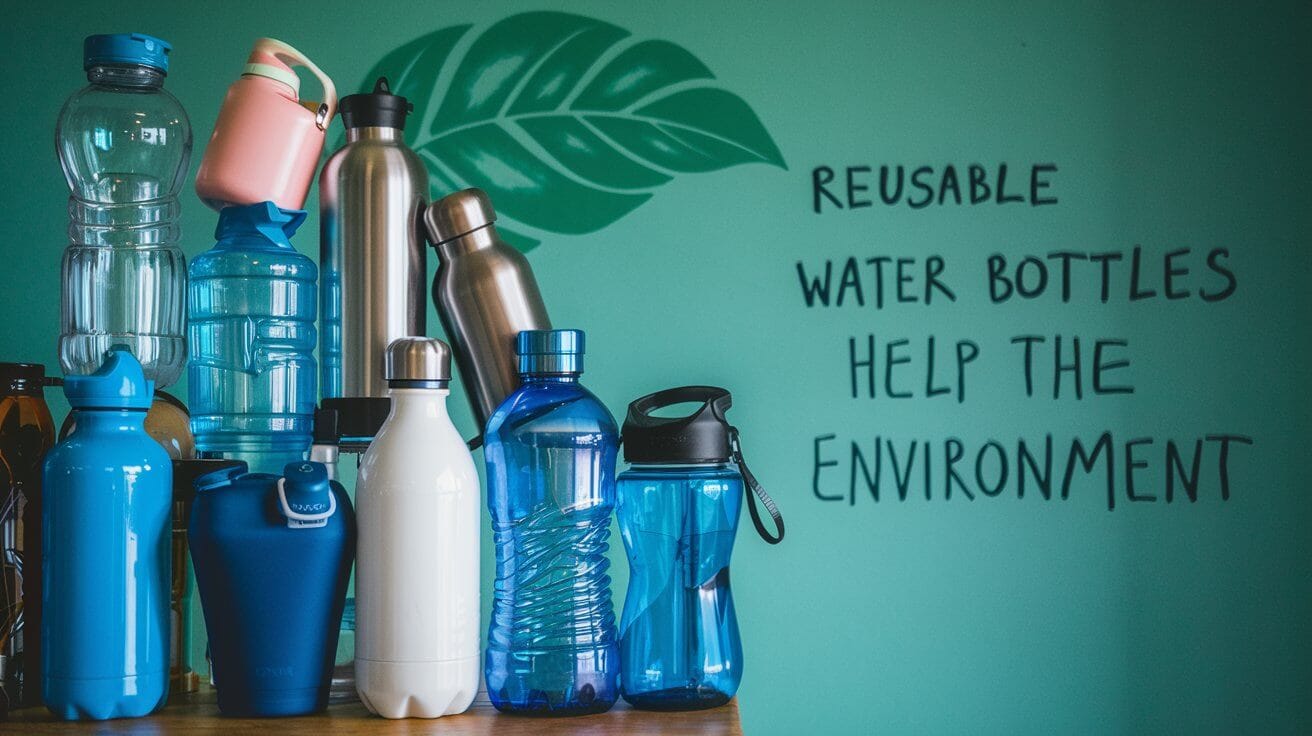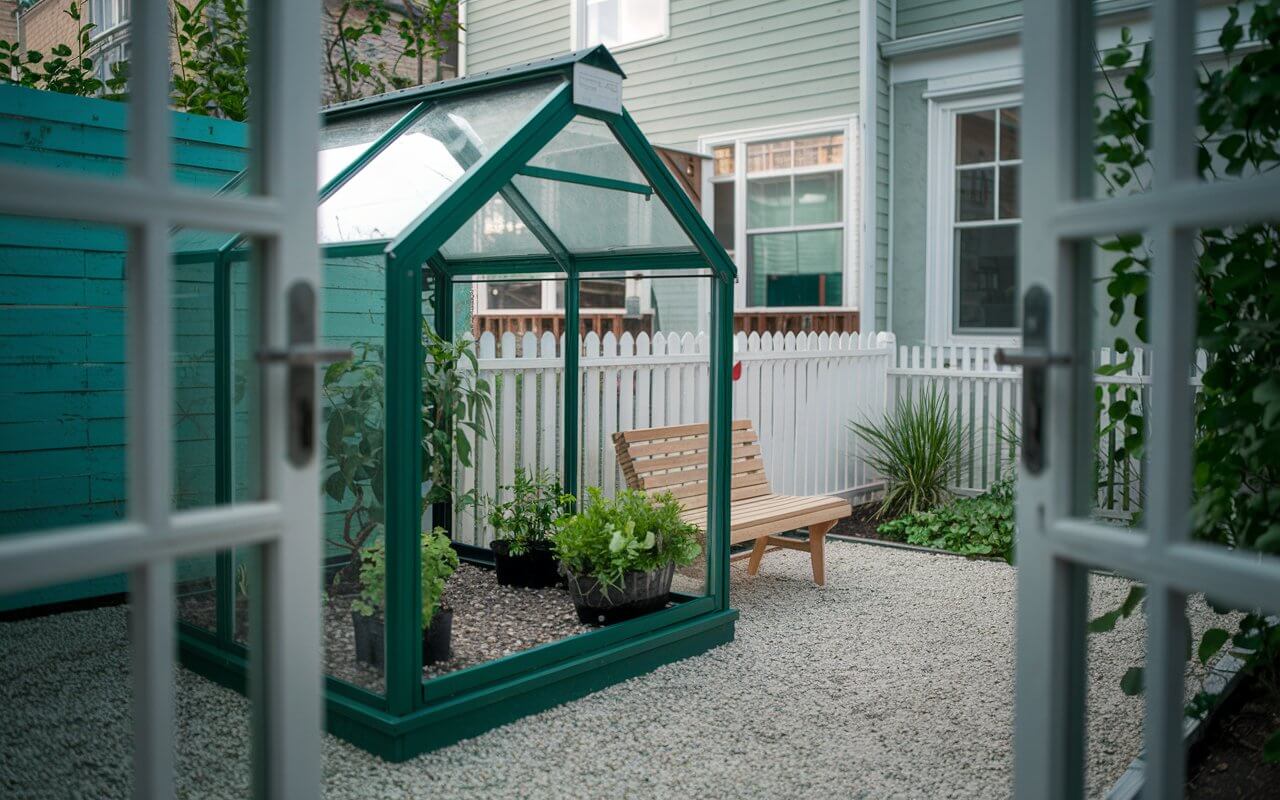Imagine a lifestyle that not only enhances your well-being but also protects our planet.
For seniors and those in senior living communities, adopting eco-friendly practices can make a significant impact on both personal well-being and the environment.
Why is sustainable living crucial for senior living communities?
As the population ages, the environmental impact of senior care facilities and retirement communities grows.
This guide offers 15 practical tips which make it easy to implement sustainable living for seniors.
Whether you’re living independently or in a senior community, these sustainable living practices will help you make a positive impact on the environment while enhancing your quality of life.
Key Takeaways:
- Energy Savings: Switch to LED bulbs to reduce electricity bills and minimize bulb changes.
- Waste Reduction: Use reusable shopping bags and water bottles to cut down on plastic waste.
- Healthy Gardening: Start a container garden for fresh produce and mental well-being.
- Eco Transportation: Carpool or use public transport to lower your carbon footprint.
- Smart Shopping: Buy in bulk and choose local, seasonal foods to support sustainability.
- Proper Recycling: Dispose of medications and electronics responsibly to protect the environment.

Page Contents
ToggleEnergy Efficiency for Seniors
Energy consumption is a major focus in sustainable living.
These simple yet effective energy-saving tips can help seniors reduce their carbon footprint without overwhelming their daily routines.
1. Switch to LED Bulbs: Easy Installation with Long-Term Benefits
LED bulbs are a game-changer in energy efficiency.
They use up to 75% less energy than traditional incandescent bulbs and last 25 times longer, according to the U.S. Department of Energy.
For seniors, this means fewer trips up ladders to change light bulbs and significant savings on energy bills.
Benefits for seniors:
- Lower electricity bills.
- Reduced frequency of bulb changes.
- Better quality lighting for aging eyes.
Implementation tip: Start by replacing the most frequently used bulbs in your home, such as those in the living room and kitchen.
2. Unplug Devices When Not in Use: Simple Yet Effective Energy-Saving Habit
Many electronic devices continue to draw power even when turned off, a phenomenon known as “phantom” or “standby” power.
Easy ways for seniors to combat phantom power:
- Use power strips with on/off switches for easy unplugging.
- Unplug small appliances like toasters and coffee makers when not in use.
- Consider timer plugs for devices that only need power at certain times.
3. Use Programmable Thermostats: Reduce Energy Consumption with Minimal Effort
Programmable thermostats can significantly reduce heating and cooling costs by automatically adjusting temperatures based on your schedule.
Tips for seniors using programmable thermostats:
- Set lower temperatures at night and when away from home.
- Gradually adjust temperatures to avoid sudden changes.
- Choose a model with large, easy-to-read displays and simple controls.
By implementing these energy-efficient practices, seniors can significantly reduce their environmental impact while enjoying lower utility bills and a more comfortable living environment.
Gardening Tips for Seniors
Gardening not only promotes eco-friendly practices but also provides a relaxing activity that enhances health and social engagement for senior living residents.
The following gardening tips are easy to implement, even with limited mobility.
4. Start a Small Container Garden: Grow Your Own Vegetables and Herbs
Container gardening is an excellent way for seniors to enjoy the benefits of growing their own food without the physical demands of traditional gardening.
A study published in the Journal of Physiological Anthropology found that indoor gardening can reduce psychological and physiological stress.
Benefits of container gardening for seniors:
- Requires less bending and kneeling.
- Can be done on balconies, patios, or windowsills.
- Provides fresh, organic produce.
Easy-to-grow plants for seniors:
- Herbs: Basil, mint, parsley.
- Vegetables: Cherry tomatoes, lettuce, bell peppers.
- Flowers: Marigolds, petunias, geraniums.
Implementation tip: Use lightweight, self-watering containers to make maintenance easier.
5. Participate in a Community Garden: Engage in Senior-Led Green Initiatives
Community gardens offer an opportunity for seniors to engage in sustainable living while fostering social connections.
Benefits of community gardening for seniors:
- Encourages social interaction and community building.
- Provides access to gardening space for those without yards.
- Offers an opportunity to share knowledge and skills.
Tips for seniors participating in community gardens:
- Start with a small plot or shared space.
- Use raised beds for easier access.
- Participate in garden planning meetings to voice your needs and preferences.
By engaging in gardening activities, seniors can contribute to sustainable living while enjoying numerous physical and mental health benefits.
These eco-friendly practices not only reduce carbon footprints but also promote a sense of purpose and community connection.
Reducing Waste for a Sustainable Senior Lifestyle
Senior living residents can take meaningful steps to reduce waste by embracing reusable products and adopting mindful consumption habits, both of which are crucial for green living.
6. Switch to Reusable Shopping Bags: Reduce Waste with a Simple Habit
Plastic bags are a significant source of environmental pollution.
The United Nations Environment Programme estimates that up to 5 trillion single-use plastic bags are used worldwide each year.
By switching to reusable shopping bags, seniors can make a substantial impact on reducing plastic waste.
Benefits of reusable bags for seniors:
- Sturdier and easier to carry than plastic bags.
- Often have longer handles, making them easier to manage.
- Can be washed and reused many times.
Implementation tips:
- Keep reusable bags near the door or in the car to remember them.
- Choose bags with comfortable handles and appropriate sizes.
- Consider foldable bags that can fit easily in a purse or pocket.
7. Use Reusable Water Bottles: Stay Hydrated and Protect the Environment
Single-use plastic water bottles contribute significantly to waste.
The Earth Day Network reports that Americans purchase about 50 billion water bottles per year, averaging about 13 bottles per month for every person in the U.S.
By switching to reusable water bottles, seniors can reduce plastic waste while staying hydrated.
Benefits of reusable water bottles for seniors:
- Cost-effective in the long run.
- Many options are available, including easy-to-hold designs.
- Can keep water cold (or hot) for longer periods.
Choosing the right reusable water bottle:
- Look for bottles with easy-to-open lids.
- Consider insulated bottles to keep drinks at desired temperatures.
- Choose a size that’s comfortable to carry but encourages adequate hydration.
By adopting these waste-reducing practices, seniors can significantly decrease their environmental impact while simplifying their lives.
These sustainable living habits not only benefit the planet but also promote a more organized and clutter-free living space.
Sustainable Transportation for Seniors
Transportation contributes significantly to environmental impacts.
Seniors can opt for eco-friendly transportation solutions that align with their mobility needs and sustainable goals.
8. Carpool with Friends or Family: Social and Sustainable Transportation
Carpooling is an excellent way for seniors to reduce their carbon footprint while maintaining social connections.
According to the U.S. Environmental Protection Agency, a typical passenger vehicle emits about 4.6 metric tons of carbon dioxide per year.
By sharing rides, seniors can significantly reduce these emissions.
Benefits of carpooling for seniors:
- Reduced transportation costs.
- Increased social interaction.
- Lower stress from not having to drive.
Tips for organizing carpools:
- Create a schedule with friends or neighbors for regular activities.
- Use ride-sharing apps designed for seniors, like GoGoGrandparent.
- Coordinate with local senior centers for group transportation options.
9. Walk or Use Public Transport: Health and Eco-Friendly Alternatives
Walking and using public transportation are excellent sustainable options that also offer health benefits.
A study published in the British Medical Journal found that people who regularly use public transport are 44% less likely to be overweight.
Benefits of walking and public transport for seniors:
- Increased physical activity.
- Reduced carbon emissions.
- Cost-effective transportation.
Making walking and public transport more accessible:
- Choose routes with even sidewalks and resting spots.
- Use mobility aids like walking sticks or rollators for stability.
- Take advantage of senior discounts on public transportation.
10. Consider Electric or Hybrid Vehicles: Sustainable Options for Personal Transportation
For seniors who prefer or need personal vehicles, electric or hybrid cars offer a more sustainable alternative to traditional gas-powered vehicles.
The U.S. Department of Energy reports that electric vehicles produce lower lifecycle emissions compared to conventional vehicles.
Advantages of electric/hybrid vehicles for seniors:
- Lower fuel costs and maintenance requirements.
- Quieter and smoother rides.
- Potential tax incentives and rebates.
Tips for transitioning to electric/hybrid vehicles:
- Research models with easy entry/exit and user-friendly controls.
- Consider leasing to stay up-to-date with evolving technology.
- Familiarize yourself with charging station locations in your area.
By adopting these sustainable transportation practices, seniors can significantly reduce their carbon footprint while maintaining their mobility and independence.
These eco-friendly options not only benefit the environment but also promote physical activity and social engagement.
Sustainable Shopping and Dietary Choices for Seniors
Seniors can adopt green living practices in their shopping and dietary choices, helping to protect the environment while also enjoying fresh and local products.
11. Buy in Bulk to Reduce Packaging Waste: Practical for Senior Households
Buying in bulk can significantly reduce packaging waste and save money in the long run.
The Ellen MacArthur Foundation reports that plastic packaging accounts for 26% of the total volume of plastics created annually.
Benefits of bulk buying for seniors:
- Fewer trips to the store.
- Reduced packaging waste.
- Cost savings on frequently used items.
Tips for effective bulk buying:
- Focus on non-perishable items like cleaning supplies and toiletries.
- Split bulk purchases with friends or neighbors.
- Store bulk items properly to maintain freshness and prevent waste.
12. Eat Local and Seasonal: Support Green Businesses and Reduce Your Carbon Footprint
Consuming locally grown, seasonal produce can significantly reduce the carbon footprint associated with food transportation.
A study in the journal Environmental Science & Technology found that buying locally could reduce the average household’s carbon footprint by 4-5%.
Benefits of eating local and seasonal for seniors:
- Fresher, more nutritious produce.
- Support for local farmers and the economy.
- Reduced environmental impact from food transportation.
Implementing local and seasonal eating:
- Visit local farmers’ markets or join a Community Supported Agriculture (CSA) program.
- Learn about seasonal produce in your area.
- Try new recipes that incorporate seasonal ingredients.
13. Embrace Plant-Based Meals: Health and Environmental Benefits
Incorporating more plant-based meals into your diet can have significant health and environmental benefits.
Benefits of plant-based meals for seniors:
- Lower risk of heart disease and certain cancers.
- Increased fiber intake for better digestion.
- Reduced environmental impact.
Tips for incorporating more plant-based meals:
- Start with “Meatless Mondays” and gradually increase plant-based meals.
- Experiment with plant-based proteins like beans, lentils, and tofu.
- Try plant-based alternatives to favorite dishes (e.g., veggie burgers, cauliflower “wings”).
| Meal | Plant-Based Alternative |
| Burger | Veggie or bean burger |
| Milk | Almond, soy, or oat milk |
| Chicken | Grilled portobello mushroom |
| Ice Cream | Frozen banana “nice cream” |
By adopting these sustainable shopping and dietary choices, seniors can make a significant impact on their environmental footprint while potentially improving their health and supporting local economies.
These green living practices not only benefit the planet but also promote a more mindful and connected approach to consumption.
Waste Management and Recycling for Seniors
Proper waste management is an essential aspect of sustainable living.
These tips guide seniors on how to manage and reduce waste effectively, contributing to a greener lifestyle and a cleaner environment.
14. Dispose of Medications Properly: Safe and Sustainable Waste Management
Proper medication disposal is crucial for protecting the environment and preventing potential health hazards.
Here’s how seniors can safely manage their medication waste:
- Participate in community take-back programs: Many pharmacies and local health departments offer safe disposal services for expired or unused medications.
- Use drug deactivation systems: These products neutralize active ingredients in medications, making them safe for disposal in household trash.
- Avoid flushing medications: Unless specifically instructed, don’t flush medications down the toilet as they can contaminate water sources.
According to the U.S. Food and Drug Administration, proper medication disposal helps prevent accidental ingestion by children or pets and reduces environmental contamination.
15. Recycle Old Electronics: Reduce E-Waste and Help Protect the Environment
Electronic waste, or e-waste, is a growing environmental concern.
Seniors can contribute to sustainable living by responsibly recycling their outdated electronics:
- Locate e-waste recycling centers: Many communities have dedicated facilities for electronics recycling. Check with your local waste management authority for nearby options.
- Participate in retailer take-back programs: Some electronics retailers offer recycling services for old devices when you purchase new ones.
- Consider donating: If your old electronics are still functional, consider donating them to local charities or schools.
A study by the United Nations University found that global e-waste reached 53.6 million metric tonnes in 2019, highlighting the importance of proper electronic recycling.
By adopting these waste management and recycling practices, seniors can significantly reduce their environmental impact while promoting a culture of sustainability in their communities.
For more tips on sustainable living, check out our comprehensive guide to sustainable living tips.
Challenges and Solutions in Sustainable Living for Seniors
Despite the numerous benefits of sustainable living, senior living residents may face unique challenges due to mobility issues, budget constraints, and unfamiliarity with newer technologies.
Here are some common challenges and practical solutions:
Challenge 1: Limited Mobility
Reduced mobility can make it difficult for seniors to engage in certain sustainable practices.
Solutions:
- Encourage container gardening or vertical gardening for easy access.
- Participate in community gardens with raised beds for accessibility.
- Use home delivery services for eco-friendly products.
- Install motion-sensor lights to save energy without needing to reach switches.
A study in the Journal of Housing for the Elderly found that accessible green spaces in senior communities can significantly improve residents’ well-being and engagement in sustainable practices.
Challenge 2: Fixed Income
Many seniors live on fixed incomes, which can make investing in sustainable products seem challenging.
Solutions:
- Focus on cost-effective practices like using LED bulbs and reducing water usage.
- Take advantage of senior discounts on energy-efficient appliances.
- Participate in community bulk-buying programs for eco-friendly products.
- Emphasize long-term savings from energy-efficient investments.
According to the U.S. Department of Energy, LED bulbs use at least 75% less energy and last 25 times longer than incandescent lighting, offering significant long-term savings.
Challenge 3: Lack of Familiarity with Technology
Some seniors may find it challenging to adapt to new, eco-friendly technologies.
Solutions:
- Offer workshops on using programmable thermostats and energy-saving gadgets.
- Provide simple, written instructions for eco-friendly devices.
- Encourage peer-to-peer learning among seniors.
- Partner with local schools for intergenerational tech-education programs.
A report by the Pew Research Center shows that seniors are becoming more tech-savvy, with 67% of adults aged 65 and older using the internet.
Challenge 4: Resistance to Change
Some seniors may be hesitant to change long-established habits.
Solutions:
- Emphasize the health benefits of sustainable living.
- Start with small, easy-to-implement changes.
- Share success stories from other seniors who’ve adopted sustainable practices.
- Connect sustainable living to values like thrift and resourcefulness.
Challenge 5: Limited Access to Information
Seniors may not always have easy access to information about sustainable living practices.
Solutions:
- Distribute printed newsletters with eco-friendly tips.
- Host regular informational sessions in senior living communities.
- Create a sustainability resource center in community spaces.
- Encourage family members to share information and assist with research.
By addressing these challenges with practical solutions, senior living communities can create an environment that supports and encourages sustainable living for all residents.
Remember, every small step towards sustainability counts.
For more tips on sustainable living that can be adapted for seniors, check out our guide to sustainable living for renters.
People Also Asked
1. Is gardening difficult for seniors with mobility issues?
Gardening can be adapted for seniors with mobility issues. Container gardening, raised beds, and vertical gardens offer accessible options.
Tools with ergonomic designs and long handles can reduce strain. Many senior living communities provide modified gardening spaces to accommodate various mobility levels.
2. Are there specific eco-friendly transportation options suitable for seniors?
Yes, several eco-friendly transportation options suit seniors.
Electric mobility scooters, community shuttle services, and carpooling programs are popular choices. Many cities offer senior-friendly public transportation with low-floor buses and designated seating.
For longer trips, consider train travel, which is often more comfortable and environmentally friendly than flying.
3. How can seniors safely dispose of household waste like old medications or electronics?
Seniors can safely dispose of medications through community take-back programs or DEA-approved collection sites.
For electronics, many retailers and local recycling centers offer e-waste recycling services.
Check with your local senior living community or waste management department for specific guidelines and collection events tailored to seniors’ needs.
4. What are some sustainable habits that seniors can adopt for day-to-day living?
Seniors can adopt various sustainable habits:
- Use reusable shopping bags and water bottles.
- Switch to LED light bulbs.
- Reduce water usage with low-flow fixtures.
- Participate in community recycling programs.
- Choose energy-efficient appliances.
For more ideas, check our sustainable lifestyle habits article.
5. Why is sustainable living important for seniors and future generations?
Sustainable living is crucial for seniors and future generations as it helps preserve natural resources, reduce pollution, and mitigate climate change impacts.
By adopting eco-friendly practices, seniors contribute to a healthier environment for their children and grandchildren.
Additionally, many sustainable habits can improve seniors’ quality of life through better air quality, healthier food options, and potential cost savings.










